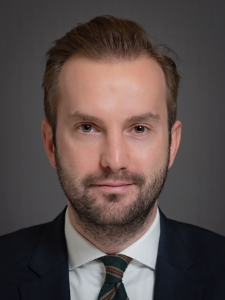Country reports
Since the War started, Serbia has voted 5 times against Russia in the UN and the Council of Europe. The President and multiple government officials consistently support Ukrainian sovereignty and territorial integrity through official statements, as well as condemning Russian aggression. Granted, this is in line with Serbia’s own interests in Kosovo, where Serbia believes that it deserves the same treatment by the West as Ukraine does with its territorial integrity and sovereignty issues. Serbia however has not joined any EU and US sanctions against Russia, its companies or individuals. This is largely due to the fact that Serbia depends on Russia for 90 % of its gas supply and that Gazprom controls the oil and gas infrastructure in Serbia, pipelines and the oil refinery. Serbia is slowly diversifying its gas supply, with the aid of USA and EU, by connecting to gas networks in Bulgaria and Greece and consequently to other gas suppliers, such as the US and Azerbaijan. There are other reasons for not imposing sanctions, such as Russian support for Serbia in the UNSC and elsewhere regarding the Kosovo issue, and crucially, public opinion. Society at large opposes imposing sanction on Russia, around 80 % depending on the poll. This is largely a product of Serbian collective trauma regarding the sanctions during the 90s and NATO Intervention in 1999. The War in Ukraine has opened old wounds and Western moral indignation at Russian actions is widely seen as hypocritical, as “Russia is doing what the West had done to Serbia and other countries”. References to the “first European war since WW2” or the “first invasion of a sovereign state in Europe by a greater power” are also seen as demeaning the Serbian trauma from the 90ies. Thus, the public at large opposes sanctions against Russia and sees Russia as acting no differently than the West. It should be noted that there is no sense of resentment against Ukraine, but rather Ukraine is seen either as a victim of aggression or as a piece on a chessboard of a great game between Russia and NATO/USA. In fact, there is sympathy for Ukraine because of this, as Serbia is perceived to have been a victim and a piece on a chessboard in the 90s. Some 66 % of the public believe that NATO is at fault in the War in Ukraine, with 10 % blaming Russia according to Demostat. The media landscape is dominated by tabloid press, which mostly reproduces a pro-Russian narrative on the War. Same holds true for key private TV Channels, such as Happy, which disseminates Russian propaganda and fake news. However, disinformation also can come from the pro-Western media, such as in the case of Danas spreading fake news on Wagner opening a cultural center in Belgrade in November. Bearing all this in mind, if Serbia was to impose sanctions on Russia, it would mark a turning point and result in some level of turmoil in the country.
Topics
Provided by
Foundation Office Serbia / Montenegro
About this series
The Konrad-Adenauer-Stiftung is a political foundation. Our offices abroad are in charge of over 200 projects in more than 120 countries. The country reports offer current analyses, exclusive evaluations, background information and forecasts - provided by our international staff.



